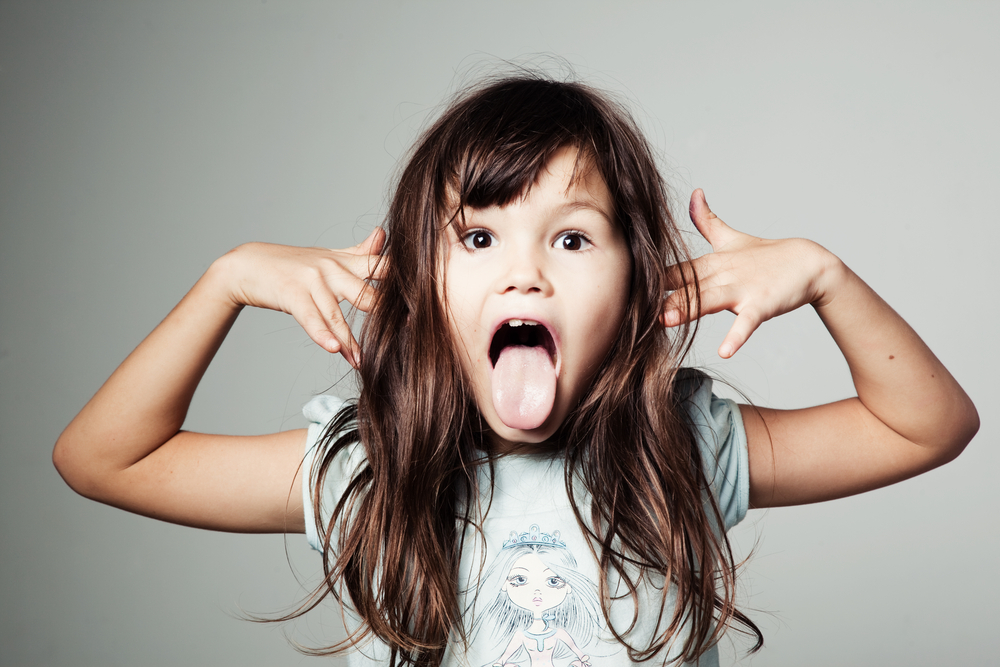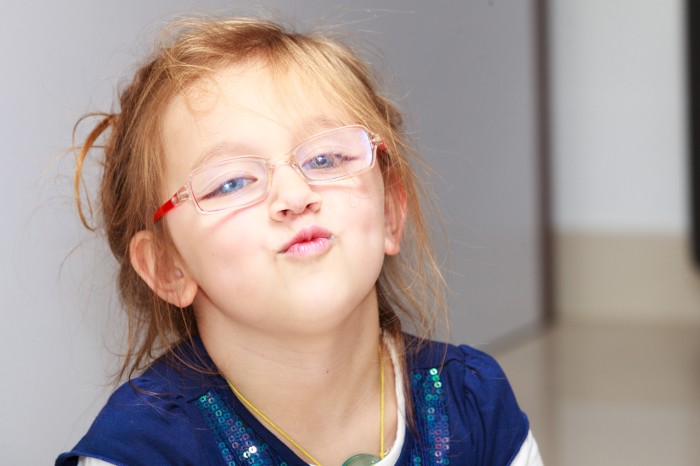Some children have a habit of mimicking other people - they grimace, make faces, make faces. Some children clown only in a circle of people close to them, being at home. Others arrange a similar circus in public, in the presence of strangers. Why do they do it? What should parents do if children do not respond to requests to stop making faces?

Why is the child grimacing?
1. According to psychologists, there are several reasons why a child often makes faces. One of them is the desire of the child to assert itself. With his antics, the child is trying to draw attention to himself. He likes when everyone around him is looking at him. It seems to the child that he behaves boldly, brightly and effectively, to everyone for joy, and, in general, hey! Moreover, dances with tambourines usually start around a small clown, someone grumbles, someone laughs, someone gets angry - emotions are seething, life is in full swing, and all this reinforces the significance of the child: I am, I am worthy of attention.
2. If a child considers himself not as interesting or talented as other children of his age, he may begin to grimace to stand out from their background. The kid may be unsure of himself, consider himself worse than others, be shy and anxious - and then antics become a strange way to still provide yourself with the necessary contact with people, as if through a protective mask.
3. When a baby is prone to self-doubt, he can clown around too. Children who are ridiculed by peers about their external data or internal qualities (peers ridicule for completeness, clumsiness, excessive modesty, or another quality that makes them unlike the others.), Often pose as jesters.
4. When a second child appears in the family, older children lack care and attention, I am jealous of my youngest childbecause mom is more busy with the baby. Naturally, the eldest son or daughter feels resentment, which prompts them to use different ways to win their mother’s attention. One such way is antics, which is like a cry for help. The child as if shouts: “Mommy, well, finally pay your attention to me!”
5. Clowning is often arranged by spoiled children, who were allowed to do everything in early childhood. Excessive custody of parents usually leads to the fact that their children do not know how to be independent, they are used to being taken care of as babies. Reaching the age of 5-7 years, they continue to behave like little ones, not realizing their role in society. Antics are just a confirmation of the infantility of spoiled children, they get accustomed to the role of the baby, because they do not know that you can behave somehow differently.
6. Disadaptation in primary school students. In younger students, antics and buffoonery at school and at home often become one of the signs of school maladaptation, when a child has difficulties with learning and communicating in the classroom.This problem needs to be solved together with the teacher: find out how the child behaves in school, what difficulties he has in the learning process, in communication, ask the teacher to help the child establish contact with classmates (praise him, call to the board and give feasible tasks). And at home, more to do with the child - and not only lessons, but also ordinary activities, instilling in him all the same self-esteem and giving him parental attention.
7. Go to the stage! And last but not least: there’s a chance that your actor is growing! And his "antics" is just a way to tell the world about his rich and subtle emotional world, which is torn out. If you suspect a child has a tendency to stage art, help him develop in this direction and create a niche in which all the “posturing” will be invested: a theater or dance studio, animation studio, art or puppet shows. The main thing is for the baby to feel at ease. Then episodic antics will acquire grace and moderation.
What can parents do if the child is grimacing?

1. Parents need to help their children get rid of the habit of grimacing as quickly as possible until it has become a character trait. First you need to try to develop a child's sense of confidence. This can be done if you give your child more opportunities where he can show independence. Trust him with small errands - ask him to take away from the table, collect toys, make the bed. When the baby himself undertakes to do something, do not interfere. Be more careful - sometimes parents simply do not notice some small things that the child did himself. Be sure to express your approval for the efforts of the children, praise them for any completed work in order to increase their self-esteem.
2. Help the child find himself in something, to fulfill himself. Invite him to do dancing, sports, painting or collecting. If he has a good memory, use this talent. Let the child remember new interesting facts about the world around him, teach poems. It is important that the baby was passionate about the process, striving to achieve some results. Possession of unusual skills will allow the child to stand out among his peers. Cling to everything that your children do well, develop these skills, praise for them. Feeling parental support and approval, the child will easily cope with his insecurity.
3. To help children break an unpleasant habit, parents need to learn how to ignore how they make faces. This is not easy, but effective, because the children make faces and make faces just in order to provoke some kind of reaction in the family (in no case should you support the child’s curvature with his attention, laughter or interest, screaming and cursing). If it is not, then there is no point in continuing the clowning. Remember, when you shout, swear, demanding to stop the circus, you show the same reaction or response that the child expects.
Do not try to fight it. Just ignore his antics. The more this annoys you, the more he will grimace, but when he sees that you are not interested in this, he will calm down. The result, of course, will not be instantaneous, but you should try not to respond to his actions for several days. If it is too infuriating - take a deep breath and count to ten. And do not scold the child, maybe he will grow up an artist 🙂
4. When a son or daughter begins to make faces, it is better to calmly explain to them that this activity is completely useless. Tell the child that you were just about to do something interesting with him, so you wait until he finishes clowning around.
5. When the baby is grimacing, he does not see himself from the side. Give him the opportunity to look at himself. Ask him to make some kind of grimace in front of the mirror, drawing his attention to how stupid and ugly he looks at the same time. Draw a caricature of a muzzle.Trying to give advice, do it in a positive way, pay attention to the good that is in the child. For example, like this: “You are a kind and smart boy, I like it. But I don’t like it when you grimace. ” Words: "Now stop grimacing!" will be less effective than those in which praise first sounds.
Following the above tips, parents will soon notice that their child is making less and less faces and mimicking others. He realizes that it is much easier to draw attention to himself, doing worthwhile and useful things.










Antics really can be very different, for example, my daughter loves to occasionally curl, but she doesn’t mimic other children, but tries to copy some kind of funny scenes from the film, such antics doesn’t bother me, but if a child starts to mimic her peers, I’m worried, I think, that all this comes from the complexes emerging in the soul of the child, I think that in this case it is necessary to explain to the child that he is loved and that he is good without this antics.
My child began to grimace when he was 3 years old. Kindergarten teachers complained many times that my child was ill-mannered and asked to influence him. My persuasion to stop doing this did not give a positive result. As a result, having understood the situation, I realized that he was grimacing only to those who did not pay attention to him. We could not win it, ceased to grimace itself after a short period of time.